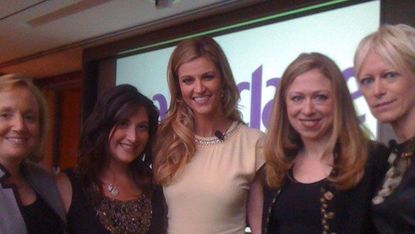
Last night the top of the Hearst Tower was abuzz with all things social media and privacy as our EIC Joanna Coles hosted a panel of very smart women to discuss the issue: Randi Zuckerberg (yes, Mark's sister) from Facebook, Amy Guggenheim Shenkan, COO of Common Sense Media, an organization focused on education and advocacy for children in the digital age, and ESPN reporter Erin Andrews who shared the story of her battle to remove her stalker's video of her from the web in our August issue. The crowd included everyone from supermodels Angela Lindvall and Coco Rocha to the great Barbara Walters—just the sort of mix we love to see at a Marie Claire event.
Former First Daughter and Common Sense board member, Chelsea Clinton kicked the evening off telling the crowd that growing up she was taught the importance of a free and vibrant press—The Arkansas Gazette was her first read. But she also noted that "having a healthy skepticism about what's in the press has been a survival skill." Chelsea got involved with Common Sense because she feels so passionately about helping kids try to make their way through the digital landscape mostly unscathed.
The discussion got spirited (in a good way) over how best to address legislation surrounding the Internet. Of course, it was Barbara Walters who got everyone on the topic when she asked a question from the audience. (At this moment I think every member of our staff did an internal squeal of joy. I mean, it's BARBARA WALTERS!!!)
Amy pointed out that there really are no laws out there and likened it to the Wild West. Her organization is focused on more stringent protections for children and I don't think there was anyone in the room who disagreed that change is necessary on that front. But Randi pointed out that it's hard for the government to get involved in something that's global and questioned what would happen if that control fell into wrong hands. Which begs the question: What falls under free speech in this situation? Much talk was made of a hypothetical "erase button" that could eradicate things like Erin's stalker video from the web.
It's a complicated situation to be sure. Even if we could erase things, who decides what should disappear? Erin would love to see a law that could at least get rid of content (like her video) that are criminal. (Her stalker is currently in jail and had done this to 14 other women.) And Chelsea chimed in that perhaps we should think about whether or not exploitation falls under free speech. We even had a First Amendment attorney in the audience weighing in. I think this legislation issue might be as complicated to solve as the debt ceiling, health care or social security. But it's fascinating!
All in all, I must say it was a enlightening discussion for many and one that merits much, much further debate. Randi says that Facebook now uses a Safety Advisory Council to vet all the new products that come through their system, but many would say this isn't enough and want to know more about how the platform will protect its users privacy. But at the same time, I think that each individual must take responsibility for his/her actions and think about the consequences before they share anything online. There is no true erase button.
And as someone who loves her social media platforms personally and professionally, I know I won't stop sharing. "It's about finding the balance," said Joanna. And I couldn't agree more.
Stay In The Know
Marie Claire email subscribers get intel on fashion and beauty trends, hot-off-the-press celebrity news, and more. Sign up here.
Do you think the government needs to get involved? What sort of legislation would you like to see?
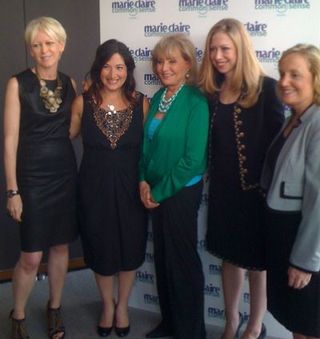
-
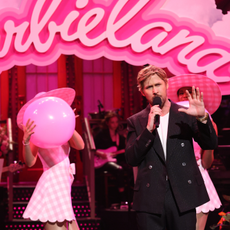 Taylor Swift Endorses Ryan Gosling and Emily Blunt's "All Too Well" Parody From 'SNL'
Taylor Swift Endorses Ryan Gosling and Emily Blunt's "All Too Well" Parody From 'SNL'She loves it.
By Iris Goldsztajn Published
-
 Shakira Makes Surprise Coachella Appearance and a Big Announcement
Shakira Makes Surprise Coachella Appearance and a Big AnnouncementThe iconic singer also performed two songs for the crowd.
By Danielle Campoamor Published
-
 Prince Harry Says Africa Is "In His Soul"
Prince Harry Says Africa Is "In His Soul"The Duke of Sussex took Meghan Markle to Botswana for the couple's third official date.
By Danielle Campoamor Published
-
 36 Ways Women Still Aren't Equal to Men
36 Ways Women Still Aren't Equal to MenIt's just one of the many ways women still aren't equal to men.
By Brooke Knappenberger Last updated
-
 How New York's First Female Governor Plans to Fight for Women If Reelected
How New York's First Female Governor Plans to Fight for Women If ReelectedKathy Hochul twice came to power because men resigned amid sexual harassment scandals. Here, how she's leading differently.
By Emily Tisch Sussman Last updated
-
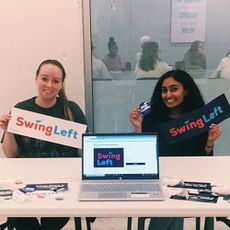 Why the 2022 Midterm Elections Are So Critical
Why the 2022 Midterm Elections Are So CriticalAs we blaze through a highly charged midterm election season, Swing Left Executive Director Yasmin Radjy highlights rising stars who are fighting for women’s rights.
By Tanya Benedicto Klich Published
-
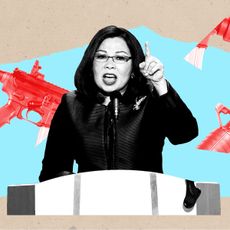 Tammy Duckworth: 'I’m Mad as Hell' About the Lack of Federal Action on Gun Safety
Tammy Duckworth: 'I’m Mad as Hell' About the Lack of Federal Action on Gun SafetyThe Illinois Senator won't let the memory of the Highland Park shooting just fade away.
By Sen. Tammy Duckworth Published
-
 Roe Is Gone. We Have to Keep Fighting.
Roe Is Gone. We Have to Keep Fighting.Democracy always offers a path forward even when we feel thrust into the past.
By Beth Silvers and Sarah Stewart Holland, hosts of Pantsuit Politics Podcast Published
-
 The Supreme Court's Mississippi Abortion Rights Case: What to Know
The Supreme Court's Mississippi Abortion Rights Case: What to KnowThe case could threaten Roe v. Wade.
By Megan DiTrolio Published
-
 Sex Trafficking Victims Are Being Punished. A New Law Could Change That.
Sex Trafficking Victims Are Being Punished. A New Law Could Change That.Victims of sexual abuse are quietly criminalized. Sara's Law protects kids that fight back.
By Dr. Devin J. Buckley and Erin Regan Published
-
 My Family and I Live in Navajo Nation. We Don't Have Access to Clean Running Water
My Family and I Live in Navajo Nation. We Don't Have Access to Clean Running Water"They say that the United States is one of the wealthiest countries in the world. Why are citizens still living with no access to clean water?"
By Amanda L. As Told To Rachel Epstein Published